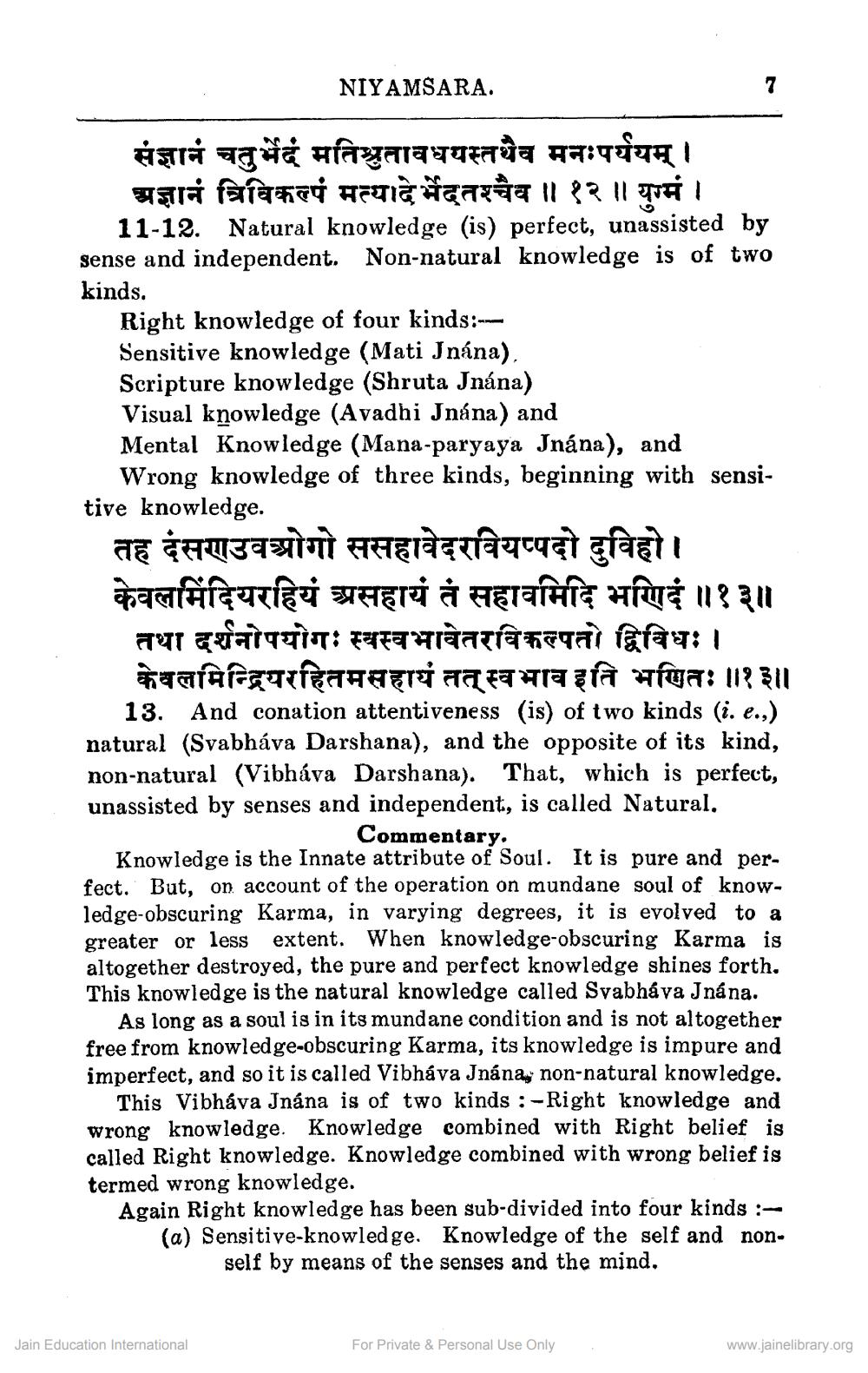________________
NIYAMSARA.
संज्ञानं चतुर्भेदं मतिश्रुतावधयस्तथैव मनःपर्ययम् । । प्रज्ञानं त्रिविकल्पं मत्यादेर्भेदतश्चैव ॥ १२॥ यग्मं ।
11-12. Natural knowledge (is) perfect, unassisted by sense and independent. Non-natural knowledge is of two kinds.
Right knowledge of four kinds:--- Sensitive knowledge (Mati Jnána), Scripture knowledge (Shruta Jnána) Visual knowledge (Avadhi Jnána) and Mental Knowledge (Mana-paryaya Jnána), and
Wrong knowledge of three kinds, beginning with sensitive knowledge.
तह सणउवोगो ससहावेदरवियप्पदो दुविहो। केवलमिंदियरहियं असहायं तं सहावमिदि भणिदं ॥१३॥ तथा दर्शनोपयोगः स्वस्वभावेतरविकल्पतो द्विविधः। केवलमिन्द्रियरहितमसहायं तत् स्वभाव इति भणितः ॥१३॥
13. And conation attentiveness (is) of two kinds (i. e.,) natural (Svabháva Darshana), and the opposite of its kind, non-natural (Vibháva Darshana). That, which is perfect, unassisted by senses and independent, is called Natural,
Commentary. Knowledge is the Innate attribute of Soul. It is pure and perfect. But, on account of the operation on mundane soul of knowledge-obscuring Karma, in varying degrees, it is evolved to a greater or less extent. When knowledge-obscuring Karma is
ogether destroyed, the pure and perfect knowledge shines forth. This knowledge is the natural knowledge called Syabháva Jnana.
As long as a soul is in its mundane condition and is not altogether free from knowledge-obscuring Karma, its knowledge is impure and imperfect, and so it is called Vibháva Jnána, non-natural knowledge.
This Vibháva Jnána is of two kinds : -Right knowledge and wrong knowledge. Knowledge combined with Right belief is called Right knowledge. Knowledge combined with wrong belief is termed wrong knowledge. Again Right knowledge has been sub-divided into four kinds :(a) Sensitive-knowledge. Knowledge of the self and non
self by means of the senses and the mind,
Jain Education International
For Private & Personal Use Only
www.jainelibrary.org




